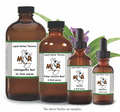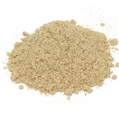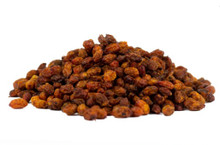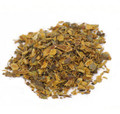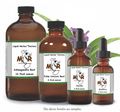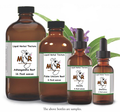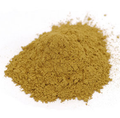 Loading... Please wait...
Loading... Please wait...- Home
- Bulk Herbs
- Herbs (S)
- Sea Buckthorn Fruit
- Home
- Herbs - Organically Grown & Wild Crafted USA
- R S T
- Sea Buckthorn Fruit
Product Description
Sea Buckthorn Berries
Organically Grown - USA/Darker berries this year.
Also Known As - Hippophae rhamnoides
Overview - This thorny shrub can be found growing on mountain slopes and along riverbanks and seashores. The silver-green leaves are accompanied by yellowish-green flowers that turn into orange berry sized fruits. Native to Asia and Europe, it has been planted throughout China and Russia to aid in erosion control and water conservation. Legends written about sea buckthorn come to us from the Ancient Greeks to Genghis Khan. Most include sick and injured horses being left in the wild, and being discovered later as healthy, strong horses running around. Upon further investigation it was discover that the horses have been surviving on the leaves, twigs, and berries of the sea buckthorn plant. This also leads to the Latin name Hippophae meaning "shining horse".
Parts Used - The fruit, seeds, and oil have culinary, medicinal, and skin care benefits. The leaves and twigs are used medicinally.
Medicinal Uses - Sea Buckthorn Berries are commonly used to generally improve health. They also contain good amounts of vitamins A, C and E. Juice from the berries has also been used in the preparation of cosmetics. Different parts of sea buckthorn have been used as traditional therapies for diseases. Bark and leaves have been used for treating diarrhea and dermatological disorders. Berry oil, either taken orally or applied topically, is believed to be a skin softener. In Indian, Chinese and Tibetan medicines, sea buckthorn fruit may be added to medications in belief it affects pulmonary, gastrointestinal, cardiac, blood or metabolic disorders.
Preparations - Difficult to harvest by hand, this "superfruit" is usually shaken off of the branches after a freeze. Once harvested the fruit may be utilized whole, dried and powered, or pressed into oil. The ripe fruit is very bitter, and has a passionfruit-like flavor once sweetened.
Disclaimer - The information presented herein by Mountain Maus’ Remedies is intended for educational purposes only. These statements have not been evaluated by the FDA and are not intended to diagnose, cure, treat or prevent disease. Individual results may vary, and before using any supplements, it is always advisable to consult with your own health care provider.







